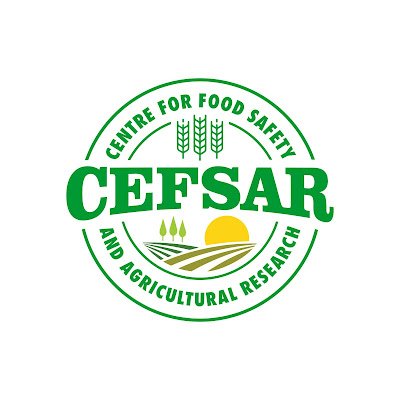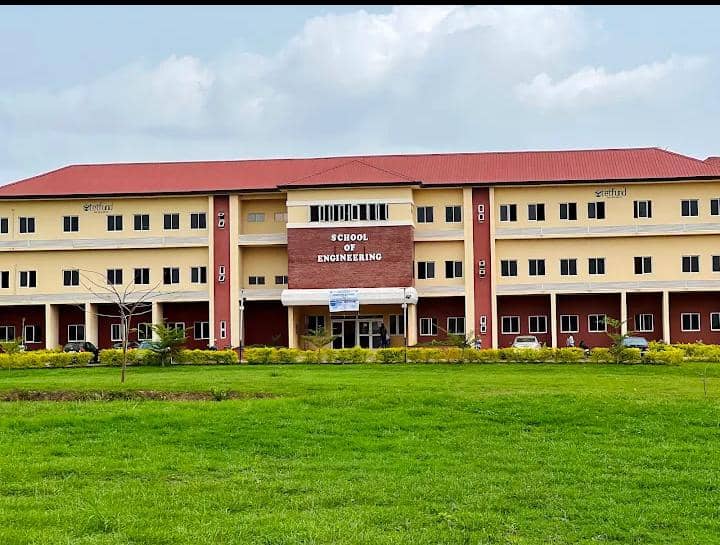CEFSAR Commends NAFDAC On Enforcing Ban On Toxic Agro Chemical And Advises Ban On Glyphosate. By Saheed Badmus

CEFSAR Commends NAFDAC On Enforcing Ban On Toxic Agro Chemical And Advises Ban On Glyphosate
 The Centre for Food Safety and Agricultural Research (CEFSAR) has commended the National Agency for Food and Drug Administration and Control (NAFDAC) for its recent decisive enforcement action leading to the seizure of banned pesticides worth over N800 million across Ogun, Ondo, Osun, and Oyo States.
The Centre for Food Safety and Agricultural Research (CEFSAR) has commended the National Agency for Food and Drug Administration and Control (NAFDAC) for its recent decisive enforcement action leading to the seizure of banned pesticides worth over N800 million across Ogun, Ondo, Osun, and Oyo States.
The Centre added that the bold move underscored the agency’s commitment to safeguarding public health, protecting our environment, and restoring integrity to Nigeria’s agricultural value chain.
According to a press statement signed in Abuja by the Executive Director, CEFSAR Prof. Qrisstuberg Amua,for over a year, CEFSAR has persistently raised alarms over the pervasive infiltration of hazardous agrochemicals – many of which have long been banned globally – into Nigerian farms, markets, and food systems.

The statement reads, “our research, advocacy, and stakeholder engagements have consistently highlighted the dangers posed by substances such as chlorpyrifos, paraquat, and atrazine, whose continued circulation threatens not only the health of farmers and consumers but also undermines Nigeria’s agricultural exports due to non-compliance with international safety standards”.
“NAFDAC’s action is a vindication of CEFSAR’s longstanding efforts to expose and curtail the reckless distribution of carcinogenic and ecotoxic pesticides in Nigeria. We recall that, through various policy briefs, scientific publications, and public sensitization campaigns, CEFSAR has advocated for a transition towards safer, sustainable, and ecologically sound pest management practices”.
“Our collaborative work with farmer cooperatives, regulatory agencies, and international partners has emphasized the urgent need to phase out hazardous chemicals and promote organic and bio-rational alternatives”.

“It is important to reiterate that Nigeria’s agricultural landscape has been riddled with dangerous agrochemicals due to weak enforcement, lack of awareness, and the vested interests of unscrupulous distributors. The health implications – ranging from increased cancer prevalence, respiratory complications, endocrine disruptions, to soil and water contamination – cannot be overstated.
“Furthermore, the economic impact, particularly the rejection of Nigerian produce in global markets due to pesticide residues, continues to erode the nation’s agricultural competitiveness”.
“We therefore align with NAFDAC’s call for vigilance and urge all stakeholders – farmers, agrochemical dealers, extension agents, and consumers – to embrace safer alternatives and ensure strict compliance with regulatory directives. CEFSAR has been at the forefront of introducing and promoting environmentally friendly solutions, and we encourage the adoption of integrated pest management (IPM) practices, organic biopesticides, and traditional knowledge systems that ensure both productivity and safety”.
“With glyphosate still permitted in Nigeria, we urgently call on the National Agency for Food and Drug Administration and Control (NAFDAC) to follow the lead of countries such as Mexico, Austria, Germany, Thailand, Saudi Arabia, Oman, Vietnam, and several European nations that have banned glyphosate, the active ingredient in herbicides like Roundup, due to its significant health risks”.
“In 2015, the World Health Organization’s International Agency for Research on Cancer (IARC) classified glyphosate as “probably carcinogenic to humans,” with approximately 70% of reviewed studies indicating an increased risk of cancer from exposure”.
“We also draw attention to Bayer/Monsanto’s payment of over $14 billion in settlements to U.S. citizens who developed cancers, particularly non-Hodgkin’s lymphoma, linked to prolonged Roundup use”.
“In Nigeria, where the World Health Organization reported 124,815 new cancer cases in 2020, the continued use of glyphosate threatens to worsen this escalating public health crisis, underscoring the critical need for immediate regulatory action to ban the herbicide”.
“CEFSAR therefore reaffirms its unwavering commitment to advancing food safety, environmental health, and sustainable agriculture in Nigeria. We stand ready to deepen our collaboration with NAFDAC, policymakers, and international partners to ensure that Nigeria’s food systems are free from toxic threats and aligned with global best practices”.




